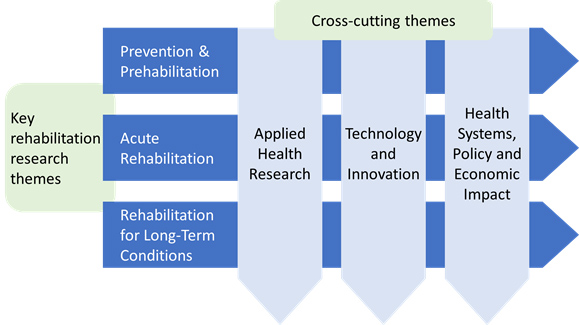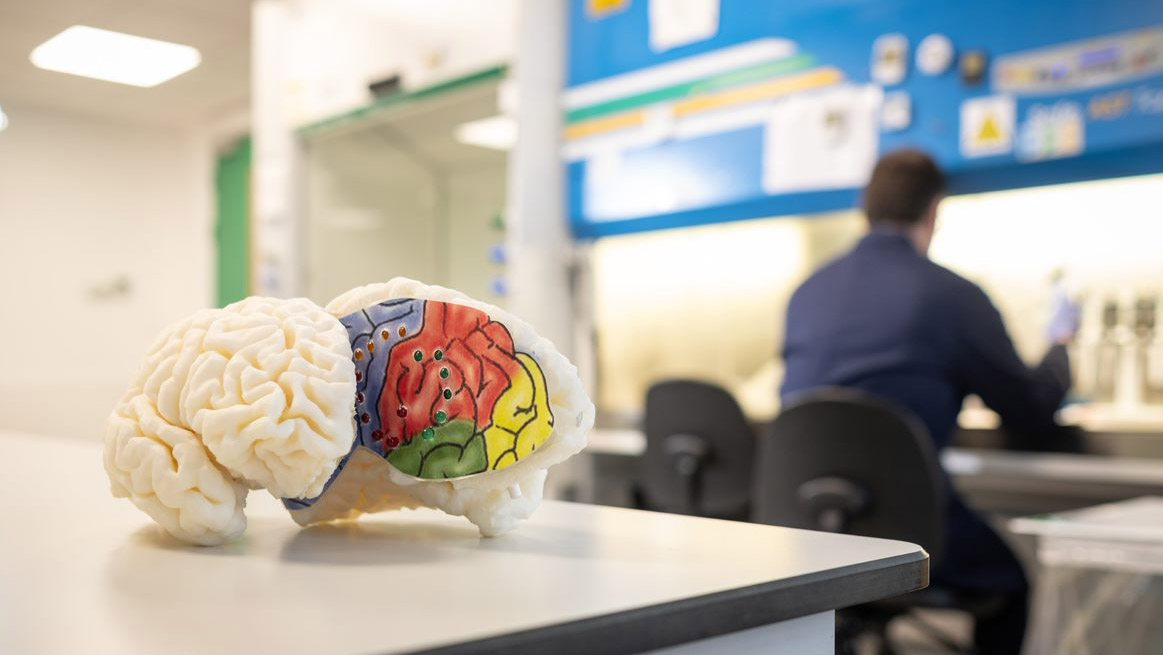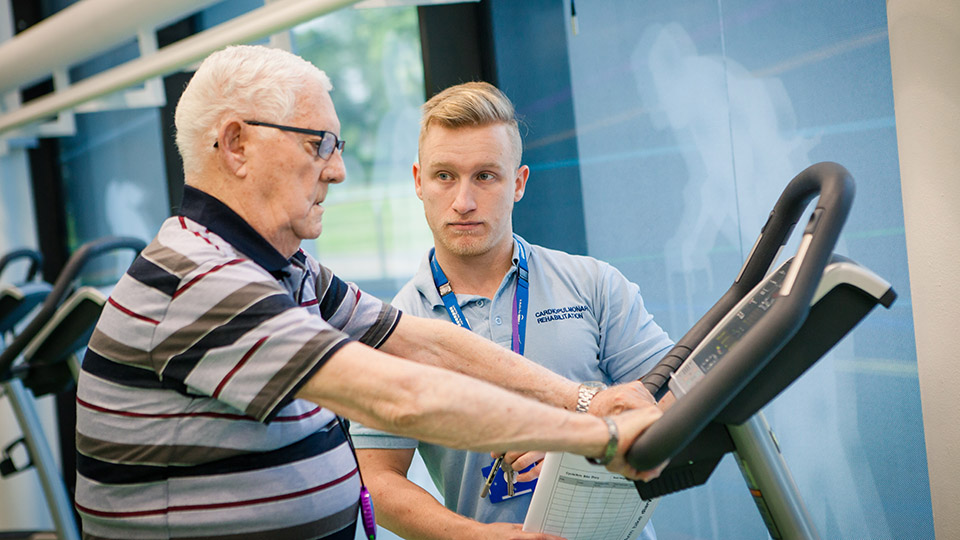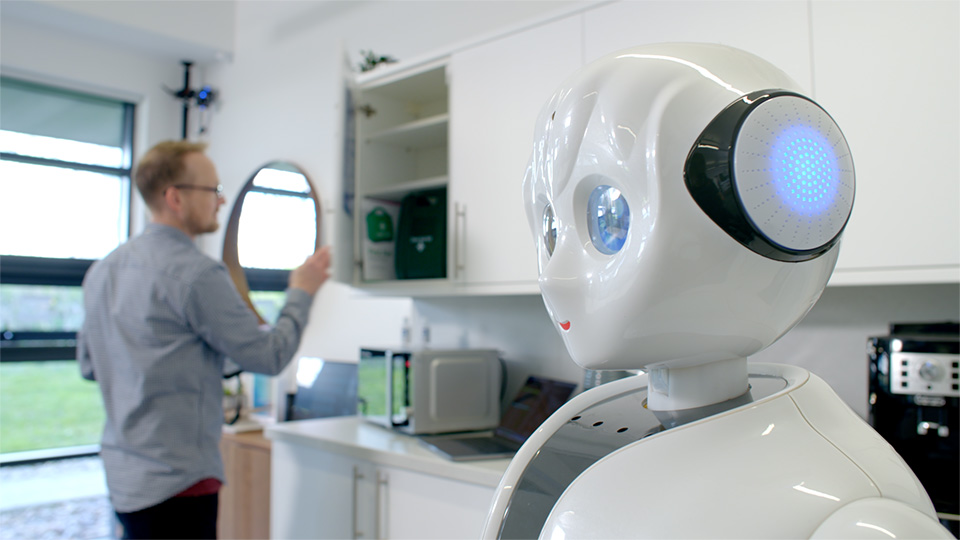Research
At the NRC, research and innovation and education and training will be fully integrated with clinical practice, putting academic staff and postgraduate students at the heart of pioneering international research into clinical rehabilitation and rehabilitation products and technologies.
A research strategy for the NRC is currently being developed. The research strategy aims to:
- Establish a national centre of excellence for research in rehabilitation
- Strengthen the national and international rehabilitation research community and improve the translation of research
- Nurture researchers and empower research leaders
- Deliver better rehabilitation and improved outcomes for patients
The strategy focuses on three core research themes: prehabilitation and prevention, acute rehabilitation and rehabilitation for longer-term conditions. There are also three cross-cutting themes: applied health research, technology and innovation, and health systems, policy and economic impact.

Research at Loughborough
Find out more about the innovative rehabilitation research being undertaken by academic staff at Loughborough University below.


